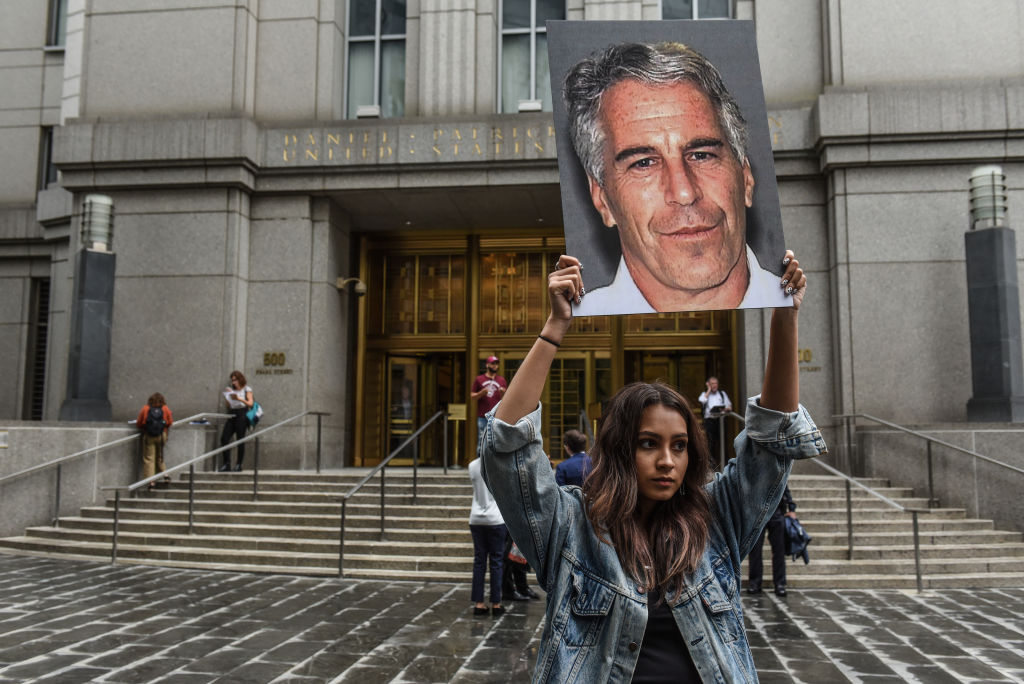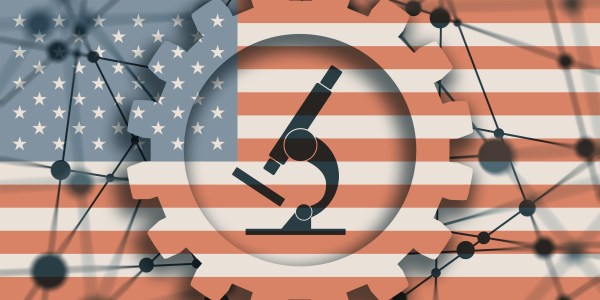Last month, federal judge Loretta A. Preska ordered the release of thousands of pages of previously sealed documents detailing Jeffrey Epstein and Ghislaine Maxwell’s pattern of sexual abuse and trafficking of teenaged girls. The documents are from a defamation lawsuit filed by alleged Epstein victim Virginia Giuffre against Maxwell, which was settled in 2017.
The documents were unsealed after repeated requests by the Miami Herald and other parties arguing there is strong public interest in this case and that the individuals discussed in the documents had already been publicly identified. Several individuals identified in the documents had previously objected to the release of their names, citing concerns about physical and reputational harm. Certain names are still redacted in the newly released documents.
These documents relate to events that spanned several decades, generated civil and criminal cases, and spawned accusations against prominent public figures, including former Presidents Bill Clinton and Donald Trump, attorney Alan Dershowitz, former New Mexico Gov. Bill Richardson, and Britain’s Prince Andrew.
Do the newly released documents provide new factual information about Epstein and his associates?
The newly released documents mostly contain information that was already previously known or, at least, the subject of previous public speculation. The declarations of Epstein’s victims, though, contain a greater level of detail about the abuse and the ways that Maxwell and Epstein preyed on underage victims.
In May 2006, Palm Beach, Florida, police recommended to state prosecutors after a lengthy investigation that Epstein be charged with four counts of unlawful sex with minors and one count of sexual abuse. This followed an initial report that Epstein had molested a 14-year-old girl whom he had invited to give him a massage. Instead, state prosecutors convened a grand jury that returned an indictment on only one count: solicitation of prostitution. Epstein was represented by a team of well-known attorneys that included Kenneth Starr and Alan Dershowitz.
At the behest of Palm Beach police who were unhappy with the leniency state attorneys granted Epstein, federal prosecutors opened their own investigation and in September 2007 offered Epstein a plea deal: He pleaded guilty to one count of solicitation of prostitution and one count of solicitation of prostitution with a minor under the age of 18; was sentenced to 18 months in jail followed by a year of community control or house arrest; and was adjudicated as a convicted sex offender who must register twice a year in Florida. This deal also included a non-prosecution agreement, agreed to by then-U.S. Attorney Alex Acosta, which allowed Epstein to avoid federal sex trafficking charges.
After the details of the plea agreement were revealed by a 2018 Miami Herald investigation, Epstein was rearrested in 2019. (Acosta, then serving as secretary of labor in the Trump administration, resigned amid criticism about the deal). While awaiting trial on multiple counts of sex trafficking and conspiracy to traffic minors for sex, Epstein was found dead in his cell. His death was ruled a suicide.
In numerous public statements and civil cases since, victims have alleged that Epstein sexually abused them, encouraged them to recruit other minors for sexual abuse, and trafficked them to other famous and powerful men. Several victims also alleged the involvement of Maxwell, a close friend of Epstein’s, who in 2021 was convicted and sentenced to 20 years for charges including sex trafficking of minors. According to allegations of the victims and evidence provided during Maxwell’s trial, Maxwell helped recruit, groom, and abuse minors as young as 14. She also encouraged victims to travel to Epstein’s other properties, knowing that they would be sexually abused there.
What do the newly unsealed documents reveal?
The unsealed documents contain court filings, photographs, investigatory documents, and depositions of Maxwell and Epstein, Giuffre, and other alleged victims related to Giuffre’s defamation cases against both Maxwell and Dershowitz. According to Giuffre and other victims, Maxwell and other facilitators recruited underage girls from troubled backgrounds to perform massages for Epstein that eventually included sexual acts. The girls were trafficked between several Epstein properties, including his private island and his homes in New York and Palm Beach. Epstein gave victims alcohol or other substances and directed them to have sex with his friends and associates.
Many prominent individuals are named in the documents, but they all appear to have been previously identified as Epstein associates. Some individuals—such as Prince Andrew and former New Mexico Gov. Bill Richardson—are identified as abusers. Others, such as Bill Clinton and Google co-founder Sergey Brin, are identified as having relationships with Epstein or visiting his properties but are not accused of abuse. Most of the famous individuals named in the documents are mentioned only in passing.
According to a newly unsealed Giuffre deposition, dated January 16, 2016, Clinton traveled on Epstein’s plane several times. Giuffre also testified that Clinton had visited Epstein’s private island, though Clinton has denied that claim. She stated that Clinton had not had sex with her or, to her knowledge, any other underaged girls. Clinton has acknowledged he knew Epstein, though the former president denies any wrongdoing or knowledge of Epstein’s crimes.
Giuffre also named former President Donald Trump in the deposition, though she states that, to her knowledge, he never received massages or had sex with any minors. Trump’s relationship with Epstein has also been the subject of prior news stories. Trump has claimed that his relationship with Epstein soured years ago.
Giuffre’s deposition details the times that Epstein directed her, as a minor, to have sex with prominent men, including the aforementioned Richardson, former Senate Majority Leader George Mitchell, businessman Les Wexner, England’s Prince Andrew, MIT scientist Marvin Minsky, hotel company heir Thomas Pritzker, and billionaire Glenn Dubin. All of these men—except Minsky, who died in 2016 before Giuffre’s allegations against him were public—have denied these charges, and none have been criminally charged. In 2022, however, Prince Andrew settled a civil sexual assault case filed against him by Giuffre for an undisclosed amount.
One of the thorniest issues involves prominent attorney and professor Alan Dershowitz, who represented Epstein during his first criminal case. Giuffre had previously identified Dershowitz as someone Epstein directed her to have sex with on multiple occasions. Her unsealed deposition graphically details several sexual encounters with Dershowitz.
Dershowitz and Giuffre both sued each other for defamation, agreeing in 2022 to settle their lawsuits against each other. Immediately after the settlement, Giuffre released a public statement saying that she “may have made a mistake in identifying Mr. Dershowitz,” but she later clarified that she “did not, and would never, exonerate Mr. Dershowitz.”
The newly released documents also include details about the toll the abuse took on Epstein’s victims. Giuffre disclosed in her deposition that while she was being abused, she was taking up to eight Xanax anti-anxiety pills per day. Sarah Ransome, another Epstein victim whose deposition was included in the newly released documents, detailed bullying about her weight by Maxwell and Epstein and their constant threats that she would be cut off financially. Both women repeat in their depositions that they still fear for their safety.
Is more litigation related to the Epstein’s behavior coming?
Currently, several sexual abuse victims are seeking damages from Epstein’s estate.
The fallout from Epstein’s crimes have spread to Wall Street, with several companies, including Barclays, JPMorgan, and Deutsche Bank, facing lawsuits for their ties to Epstein. Barclays investors sued the company, claiming that Barclays had concealed former CEO Jes Staley’s damaging ties to Epstein. Emails between Staley and Epstein included suggestive language about young women and photographs of young women that some readers interpreted to mean that Staley knew about Epstein’s sex crimes. In 2023, JPMorgan agreed to a $290 million settlement with Epstein’s victims and another $75 million with the U.S. Virgin Islands, where Epstein had a home. More than 100 victims and the U.S. Virgin Islands have accused JPMorgan of turning a blind eye to Epstein’s sex trafficking and enabling his crimes. The lawsuits revealed that the bank had filed suspicious activity reports for Epstein as early as 2002 but continued to provide him banking services, including large withdrawals of cash, even after his conviction for sex crimes. Similar claims were made against Deutsche Bank.
More than 200 victims have also filed for compensation from a voluntary victims compensation fund set up by Epstein’s estate. Many of Epstein’s victims still have not been publicly identified, which makes it difficult to ascertain how many victims there are across the various lawsuits.
Meanwhile, Maxwell’s criminal appeal continues and is scheduled to be heard next year. Despite numerous parties being identified in the legal documents and interviews, no one except Maxwell and Epstein have been criminally charged. But the potential for civil and criminal cases may remain, depending on the statute of limitations of the relevant state.






Please note that we at The Dispatch hold ourselves, our work, and our commenters to a higher standard than other places on the internet. We welcome comments that foster genuine debate or discussion—including comments critical of us or our work—but responses that include ad hominem attacks on fellow Dispatch members or are intended to stoke fear and anger may be moderated.
With your membership, you only have the ability to comment on The Morning Dispatch articles. Consider upgrading to join the conversation everywhere.